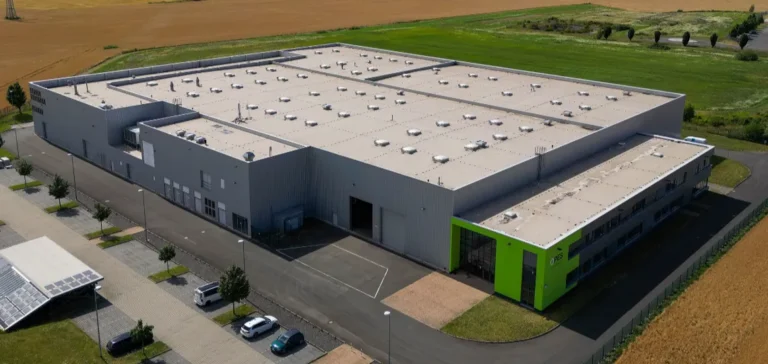Technology company OPES Solar Mobility has commissioned a production facility for flexible solar panels designed for vehicle integration in Zwenkau, near Leipzig. This is the first plant of its kind in Europe. The site covers 12,000 m² and will employ 120 people. The modules produced are aimed at diesel and electric fleets, providing supplementary solar power to onboard systems, which would extend driving range and increase battery lifespan.
A technology aimed at commercial fleets
OPES panels are designed for commercial and recreational vehicles, including trucks, refrigerated trailers, camper vans and urban buses. They supply energy to electrical systems without requiring major vehicle modifications. OPES plans to supply its modules to more than 15 partners and customers across Europe, Africa and South America. Additional agreements are under final negotiation, according to the company.
The market potential is considered significant. The technical director of MAN Truck & Bus CZ stated that these technologies could reduce operating costs, extend range and improve battery performance in heavy-duty vehicles. The group is working with OPES to integrate this solution into its models.
Collaboration with German research institutes
The development of these modules was carried out in collaboration with the Fraunhofer Center for Silicon Photovoltaics CSP and the Fraunhofer Institute for Solar Energy Systems ISE. These partners estimate the technical potential of solar modules for commercial vehicles in the European Union at 70 gigawatts, equivalent to around 6 million trucks and 30 million vans.
The modules are distinguished by a patented innovative structure, the Matrix technology, which maintains energy generation even under partial shading. The cells are interconnected in a brick-like pattern, reducing losses typically observed in standard systems. This design enhances mechanical resistance, essential for vehicles subject to constant vibration.
An export-oriented industrialisation strategy
OPES Solar Mobility claims to be facing growing international demand. The company is relying on the durability of its modules and their higher energy yield to position itself in the large-scale commercial vehicle segment. It plans to rapidly industrialise its technology based on a custom-developed production setup.
According to OPES management, global adoption of these modules will depend on their ability to be easily integrated into existing fleets and demonstrate measurable operational savings.






















